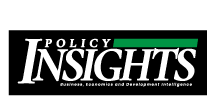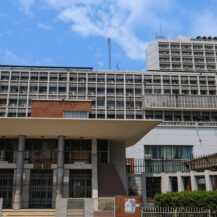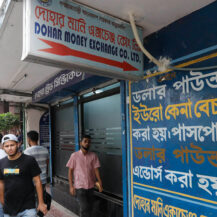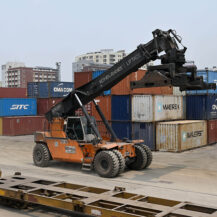National Tariff Policy Opens Doors for Export Diversification
By
What have tariffs got to do with export diversification? That would be a fair question for a layperson to ask. The simple economic answer is ‘plenty’. This is an important revelation uniquely relevant to the Bangladesh context. Export diversification, that is, the rise in the share of various non-RMG exports in Bangladesh’s export basket, is not getting traction despite two decades of policy focus on ‘thrust sectors’, ‘high priority sectors’, and ‘special development sectors’. National Tariff Policy 2023 grabs the bull by the horns, as they say. The focus now turns to the state of tariff protection as the problem at hand.
Bangladesh badly needed a nationally recognised policy articulating the structure and trend of import tariffs. Now it has one in the National Tariff Policy (NTP) 2023 (Gazette notification of August 10, 2023). This is unique for a developing or developed economy. 75 years following the launch of the General Agreement on Tariffs and Trade (GATT), and its successor, WTO, tariffs around the world have been inexorably on the way down. So much so that average world tariffs are estimated at about 6%, low enough to turn attention to non-tariff barriers (NTBs) to trade and to trade facilitation measures to boost international trade. Trade policy analysts find current policies around the world being geared to removing what they call ‘trade friction’ through improved trade logistics and infrastructure. Across the Globe tariffs are no longer the centre of attention. Not so in Bangladesh.
Bangladesh badly needed a nationally recognised policy articulating the structure and trend of import tariffs. Now it has one in the National Tariff Policy (NTP) 2023 (Gazette notification of August 10, 2023).
Though Bangladesh liberalised trade significantly in the 1990s to be described as a ‘globaliser’, perhaps a second round of liberalisation of a different kind has become due. Thus the government felt it necessary to launch a National Tariff Policy 2023 (NTP 2023) in light of the impending graduation of Bangladesh out of Least Developed Country (LDC) status. Analysts in the past have identified a plethora of complexities, inconsistencies, and inherent conflicts within the tariff structure that make it antithetical to the national goals of a dynamic export-oriented and rapidly growing economy that Bangladesh is. The policy, as announced, will be operative for a period of five years, or until it is superseded by its successor policy sometime thereafter. 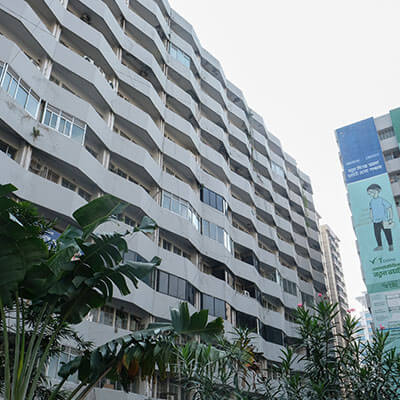
Bangladesh is adopting various policies and gearing itself to address the challenges – as well as opportunities – that will befall this rapidly developing economy leading up to and beyond the period of post-LDC graduation. The NTP 2023 is clearly one of them. In particular, the focus of this NTP is on sustaining export expansion and diversification (products and markets). A closer examination of its approach reveals that the NTP subscribes to a fundamental proposition of trade policy – that tariffs, protection, and export performance (including diversification) are not mutually exclusive events.
Under the Ministry of Commerce, Bangladesh Trade and Tariff Commission (BTTC), appears to be the leading government agency responsible for spearheading NTP 2023. For a trade analyst, the document reveals detailed diagnostics of the state of tariffs and para-tariffs applied for the purpose of protection and revenue. But the NTP clarifies that, in its application, the focus will be on such import taxes as customs duty (CD), regulatory duty (RD), and supplementary duty (SD), which are not ‘trade neutral’. In other words, when these import duties are applied for protection purposes (rather than revenue) they are not considered trade neutral. Value added tax (VAT), advance income tax (AIT), advance VAT (AT), are considered trade neutral (i.e. applied equally on imports and domestic production) and are not under the purview of NTP 2023. That puts the onus of revenue generation tariffs and import taxes on the National Board of Revenue (NBR). A dichotomy appears to be unfolding. Under the Rules of Business, it appears that the mandate for formulating tariff policy rests with the Ministry of Commerce (MOC)/Bangladesh Trade and Tariff Commission (BTTC). Implementation of policy and mobilisation of revenue through import taxes rests with the NBR.
In analysing the breadth and depth of this (NTP) critical component of Bangladesh trade policy, let me begin with what I would consider the most transformative (and innovative) scheme initiated in the trade sphere in several decades. And it strikes at the heart of the problem – little or no traction in export diversification. In keeping with the goal of export diversification as enunciated in relevant sections of Export Policy 2021-2024 and Import Policy Order 2021-2024, under section 6.1.17 of NTP’s General Rules of tariff determination, all firms that produce for exports as well as sales in the domestic market may now import inputs (meant for exports) duty-free, by posting 100% bank guarantee against such imports, up to 70% of export value. When applied this scheme will be the equivalent of Special Bonded Warehouse (SBW) granted to RMG exporters, something non-RMG exporters have been screaming for.
This sounds like déjà vu all over again. Like SBW, this scheme creates the level playing field for all exports and potential exports in the world market by ensuring world-priced inputs – exporters don’t have to pay upfront for tariffs on imported intermediate goods, capital goods and raw materials. Non-RMG exporters can now compete in the world market purely on the basis of labour cost advantage, just like RMG. This approach would immediately minimise the phenomenon of ‘trade policy dualism’ that characterises our current trade policy –one policy for the RMG sector and another for the rest.
But that is only a necessary condition for promoting exports of non-RMG products, of which the data shows that Bangladesh has been exporting an average of 1600 products (HS-6 digit level) each year between 2005 and 2021. Most of these exports are below USD 1 million and their growth is stymied by the current incentive system that makes sales in the domestic market far more lucrative than exporting which requires too much effort but yields low profit margins. The source of this paradoxical situation is the current state of tariff protection which generally favours import substitute production over exports (anti-export bias, explained later). And NTP 2023 goes head on to address the protection problem which is stifling any movement towards export diversification.
The focus of NTP 2023 all seem to be in the right direction: liberalisation of trade and rationalisation of tariffs to strengthen competitiveness of domestic industries, expand and diversify exports, promote investment and create employment. In furtherance of these objectives, the NTP sets a number of important goals: achieving the development targets of Perspective Plan 2021 and 8th Five Year Plan (8FYP), addressing post-LDC graduation challenges in trade, expanding and diversifying exports by reducing anti-export bias of policy incentives, rationalising the tariff structure, promoting foreign and domestic investment through a predictable tariff regime, generating employment via exports, ensuring participation in global and regional value chains (GVCs and RVCs), responding to external shocks, and improving consumer welfare by ameliorating their burden from excessive protection tax. 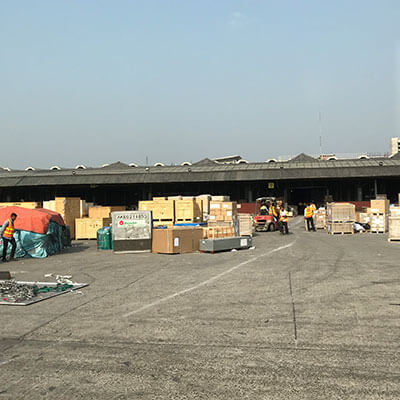
NTP 2023 acknowledges that industrial protection is deeply rooted in Bangladesh’s economic policy and practice. Tariffs and para-tariffs are now the principal instrument of protection, which is the way to grant incentive to import substitute production. But the current practice does not require protection to be subject to any binding with regard to the degree of protection, the time period or any performance criteria. NTP proposes to bring some order in this chaotic state of protection by streamlining and rationalising the protection structure.
NTP 2023 acknowledges that industrial protection is deeply rooted in Bangladesh’s economic policy and practice. Tariffs and para-tariffs are now the principal instrument of protection, which is the way to grant incentive to import substitute production.
The principle of time-bound protection is being introduced. BTTC will be reviewing the prospects of ‘high potential’ sectors and granting time-bound protection to them. So-called infant industries have existed in Bangladesh from time immemorial resulting in proliferation of ‘geriatric infants’. Henceforth, NTP plans to recognise infant industries or new industries on the basis of proper research to be carried out by the BTTC and protection, when granted, is to be made time-bound –an age-old argument of trade economists. The idea of time-bound protection is appropriate with impending LDC graduation since the only way to ensure that our industries become competitive over time is by gradually reducing protective tariffs and increasing import competition thereby.
Another highlight of the NTP is the acknowledgement of the prevalence of significant anti-export bias of policy incentives that impede growth of non-RMG exports and prevent export diversification. Almost all domestic production of manufactured consumer goods are protected by high tariffs and para-tariffs. Theoretically speaking, a tariff is an indirect subsidy on import substitutes and a tax on exports. Duties levied on imports of final goods raise their domestic relative prices, thereby increasing the profitability of import substitutes relative to exports, which have to be exported at world prices. This diverts resources towards production for the domestic market, away from the production of exports. For example, the very high tariff protection (85.6% to 113%) afforded to such industries as ceramics, plastics, tableware, kitchenware, footwear, lamps, and biscuits, etc. which are reflected in much higher domestic prices of these products compared to their export prices. The net result is that domestic sales are far more profitable than exports, so exports are discouraged. Almost all of these products have some exports but export potential, which is much higher, is never realised. The latest research by Policy Research Institute of Bangladesh (PRI) has conclusively shown that ‘global competitiveness’ is not their problem, it is the high degree of anti-export bias that discourages them from expanding their exports. In consequence, Bangladesh’s export basket remains mired in the glow of RMG exports.
As a national policy statement, NTP 2023 has not ignored the interests of the largest stakeholder group in the trade policy arena – consumers. One of its goals is to improve consumer welfare. Tariffs are ultimately paid by consumers. The protection that is afforded through nominal and effective tariffs is also a tax on consumers who bear the ultimate burden of the protection tax by having to pay higher than world prices (tariff-inclusive price) for imported products and their domestic substitutes. So, policymakers need to balance the support they extend to producers by ameliorating the social costs of protection. The community as a whole stands to gain from protection only when the objective of protection is met, i.e. domestic import substitute producers become globally competitive in the shortest possible time so that protection can be removed and domestic prices of import substitutes converge to international prices. The longer this takes, higher are the social costs of protection. Therefore, one of the idealistic goals of NTP 2023 is to gradually scale back protective tariffs with the objective of reducing the burden of higher tariff-induced prices on consumers.
END NOTE: In concluding, it is worth pointing out that the NTP 2023 takes a bold stand on several contentious issues in the political economy arena of trade policy, some of which are unique to the Bangladesh context. Yet, it brings them into sharp focus with brevity and technical ingenuity. Implementation now is what will matter most. Therefore, no less visible is the high-powered implementation committee that has been constituted, headed by the Minister of Commerce, comprising at least 10 secretaries of government, along with representatives of the Prime Minister’s Office (PMO), Bangladesh Bank, BIDA, and FBCCI. BTTC Chairman is the Member-Secretary. Expectations therefore run high.
In the end, proof of the pudding will be in the eating, as wise men would say.
